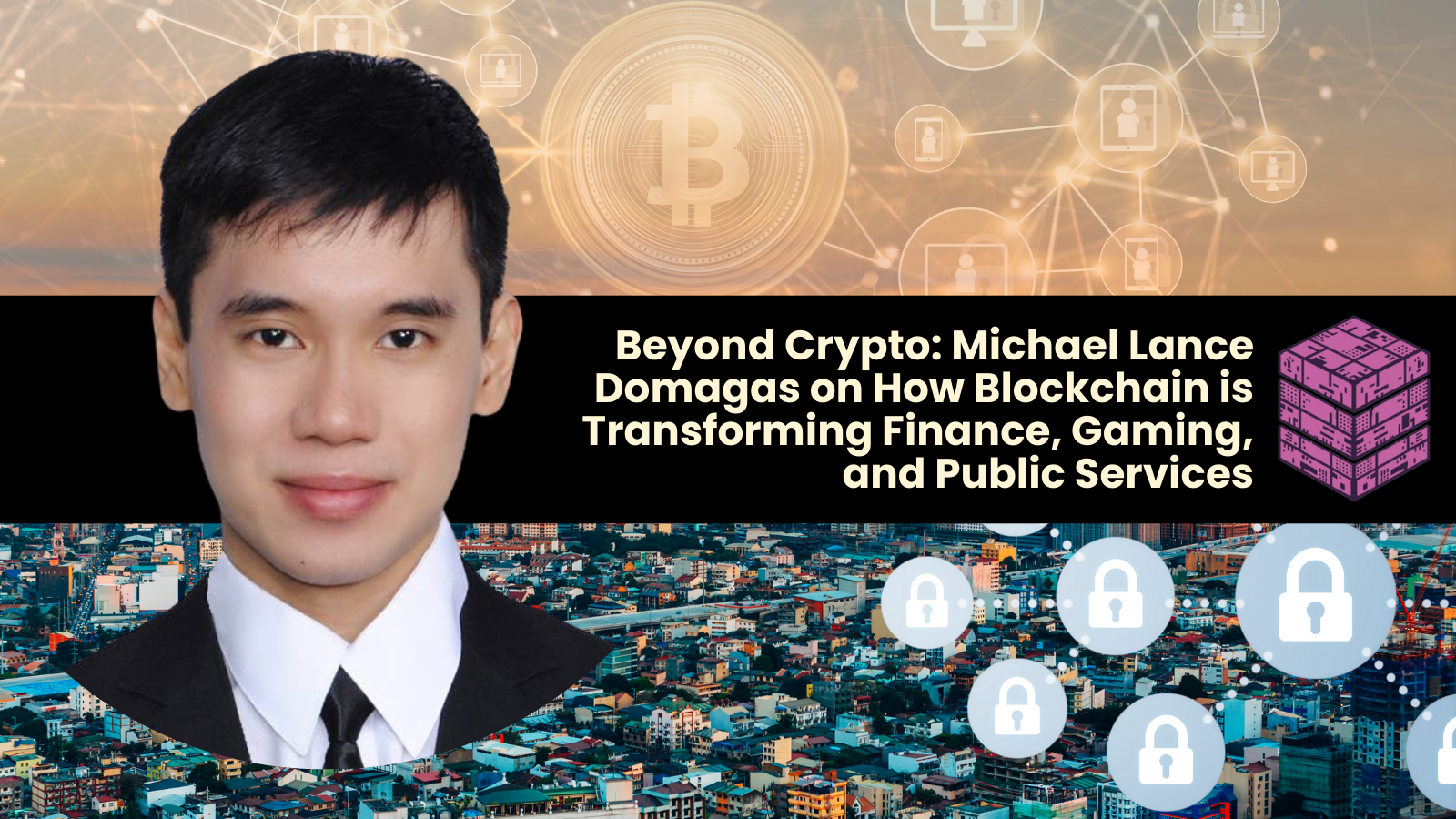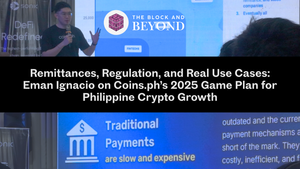Blockchain technology is often synonymous with cryptocurrency, but its real-world applications go far beyond digital assets. From improving financial transparency to securing land titles and revolutionizing gaming, blockchain could make its mark across multiple industries.
When people hear "blockchain," they often think of Bitcoin and cryptocurrency trading. However, blockchain is more than just a financial instrument. It is a technology that enhances transparency, security, and efficiency in various fields, including finance, supply chains, gaming, and even government services.
According to Michael Lance Domagas, Secretary of the Phil IT Org, Code Camps and PR Lead at DEVCON Philippines, Member of the Blockchain Council of the Philippines (BCP), Analytics Association of the Philippines (AAP), and Laravel PH and Technology Manager at Break the Fake Movement, organizations across different sectors are beginning to see the potential of blockchain beyond speculative assets.
Additionally, he is also a Community Growth Lead at PWA Pilipinas, a co-organizer of DigitalOcean Manila, and an organizer of NASA’s International Space Apps Challenge in the Philippines.
With his extensive involvement in various fields—including blockchain, developer advocacy, digital security, and technology education—Domagas has a broad perspective on how emerging technologies are shaping different industries.
Enhancing Transparency in Finance
One of the most immediate and impactful uses of blockchain is in the financial sector. Traditional financial systems rely on centralized databases that can be vulnerable to fraud and manipulation. Blockchain offers an alternative by providing an immutable ledger where transactions are recorded transparently and securely.
"What blockchain can offer to the finance industry is the integrity, immutability, and transparency of decentralized technologies, versus a monolithic, centralized hub as source of all information."
With his experience in DEVCON Philippines, Lance has worked closely with developer communities, giving him insight into how blockchain technologies could be adopted at different levels of technical expertise.
Financial institutions could begin to adopt blockchain for use cases beyond cryptocurrency transactions. From cross-border payments to fraud prevention, blockchain provides an additional layer of trust and security. Banks and payment processors exploring decentralized ledger technology could improve efficiency while reducing the risks associated with centralized financial systems.
Blockchain’s Role in Supply Chain Management
The supply chain industry is another area where blockchain could prove its worth. Traditional enterprise resource planning (ERP) systems manage inventories and transactions, but they often lack full transparency when dealing with third-party vendors. Blockchain can address this issue by creating a shared, tamper-proof ledger for tracking goods and verifying transactions.
"Supply chain industries typically use enterprise resource planning (ERP) in managing inventories. However, visibility is important when transacting to third-party partners. This is where blockchain comes in, to provide more transparent transactions."
As a member of the Blockchain Council of the Philippines, Lance has observed firsthand the need for organizations to integrate blockchain beyond cryptocurrency, particularly in finance and supply chain transparency.
By enabling real-time tracking and verification, blockchain minimizes disputes between suppliers and buyers. It ensures that records are accurate, prevents counterfeiting, and streamlines operations in industries that rely on complex supply chains, such as manufacturing and logistics.
Revolutionizing Gaming and Digital Assets
Gaming is another sector where blockchain is making an impact. With the rise of play-to-earn models and digital asset ownership, blockchain technology enables gamers to have true ownership of in-game items. Unlike traditional gaming ecosystems where digital assets are locked within a single platform, blockchain allows for interoperability and provable ownership.
"In entertainment and gaming, representation of digital assets and in-game items in the outside world is important. Blockchain provides immutability and persistence across platforms to vet for the ownership of any asset."
This extends beyond gaming. The same principles can apply to creative industries where artists and musicians can use blockchain to authenticate their work. Non-fungible tokens (NFTs) provide proof of ownership, ensuring that creators receive proper attribution and compensation for their work.
Public Services and Government Applications
Perhaps the most transformative potential for blockchain lies in public services. Government institutions handle vast amounts of data, from land titles to tax records. Ensuring accuracy and preventing corruption is a constant challenge. Blockchain offers a solution by creating a transparent and immutable system for recording public information.
"Land titles would need for a more robust mode of authentication, especially when real estate properties are getting more valuable. The principle of public notaries, which is a form of witnessing and verification that a document exists, serves as an inspiration for blockchain."
His role in Break the Fake Movement, which focuses on digital security and misinformation, has reinforced his perspective on how blockchain’s immutability can enhance public trust in financial transactions and public records.
Beyond land titles, blockchain can enhance the efficiency of tax collection and budget distribution. Transparent tracking of government expenditures can help prevent fraud and mismanagement, fostering greater accountability.
"Taxation and disbursement of budget can be monitored transparently by blockchain, to deter fraud, corruption, and malversation of funds."
By leveraging blockchain for public services, governments can modernize outdated processes, improve trust in institutions, and provide more efficient services to citizens.
Blockchain technology is still in its early stages, but its applications extend far beyond cryptocurrency. Whether it’s making financial systems more transparent, securing supply chains, empowering gamers and artists, or improving public service efficiency, blockchain is laying the foundation for a more secure and transparent digital future.
As adoption grows, industries across finance, gaming, and government will continue to explore how blockchain can enhance operations and drive innovation. The challenge now is not whether blockchain has potential, but how quickly organizations and institutions can embrace its benefits.











